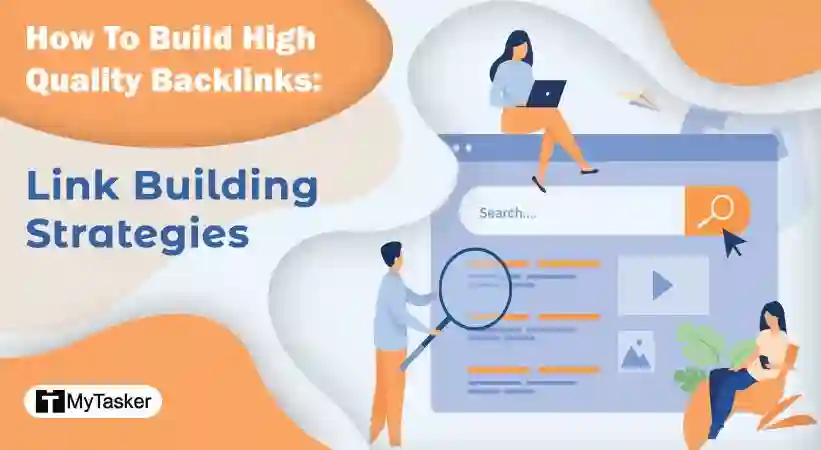In the intricate world of search engine optimization (SEO), link building stands as a fundamental practice that can significantly impact a website’s visibility and authority. However, the landscape of link building has evolved, emphasizing the importance of effectiveness and ethicality. In this article, we’ll delve into strategies that not only contribute to effective SEO link building but also adhere to ethical principles, ensuring sustained success in the ever-evolving digital realm.
1. Create High-Quality, Shareable Content:
At the core of any successful link building strategy lies the creation of high-quality content. Craft content that addresses the needs of your target audience, provides valuable insights, and is inherently shareable. When your content is compelling, other websites in your niche are more likely to link to it as a reputable resource, contributing to the organic growth of your link profile.
2. Guest Posting with Relevance:
Guest posting remains a potent strategy for acquiring backlinks, but it should be approached with a focus on relevance and value. Identify reputable websites in your industry that accept guest contributions. Ensure that your guest posts provide genuine value to the target audience, and include a relevant link back to your site. The emphasis should be on contributing to the conversation rather than solely building links.
3. Leverage Influencer Relationships:
Build meaningful relationships with influencers and thought leaders in your industry. Engage with their content, share insights, and foster connections organically. When influencers recognize the value of your contributions, they may naturally link to your content. Collaborative efforts with influencers not only enhance your credibility but also lead to ethical link-building opportunities.
4. Resource Link Building:
Create comprehensive and valuable resources within your niche, such as guides, tutorials, or tools. Resources naturally attract links from websites seeking to provide their audience with authoritative content. Outreach to relevant websites, showcasing how your resource can add value to their audience, and encourage them to link to it.
5. Broken Link Building:
Identify broken links on authoritative websites within your industry. Reach out to the website owners, alerting them to the broken link, and suggest your relevant content as a replacement. This strategy not only helps in acquiring backlinks but also aids website owners in maintaining a seamless user experience.
6. Social Media Engagement:
Active engagement on social media platforms is a multifaceted strategy. Share your content across various social channels, encourage user engagement, and participate in conversations within your industry. While social media links may not directly impact search rankings, they contribute to online visibility and can lead to organic backlinks from users who find your content valuable.
7. Create Linkable Assets:
Develop content that serves as linkable assets – pieces of information or tools that others in your industry would want to reference and link to. This could include data-driven studies, infographics, or unique tools. The more valuable and distinctive your content, the higher the likelihood of it being cited and linked to by others.
8. Internal Link Optimization:
Optimize internal linking within your website. Strategic internal links contribute to a better user experience, guide visitors to relevant content, and distribute link equity across various pages. While the primary focus is often on external links, a well-structured internal linking strategy is vital for overall SEO success.
9. Align with Industry Directories:
Ensure your website is listed in relevant and reputable industry directories. Directories can serve as a valuable source of backlinks, especially when they are specific to your niche. However, exercise caution and choose directories with a genuine focus on providing useful information rather than those solely created for link building.
10. Link Earning Through Public Relations:
Engage in public relations activities that naturally lead to link earning. This could involve getting coverage in reputable news outlets, industry publications, or online magazines. When your brand is featured in the media, it often results in organic backlinks from authoritative sources.
11. Educate and Share Insights:
Position yourself or your brand as an industry authority by consistently sharing valuable insights and educational content. Write thought leadership pieces, contribute to industry forums, and engage in discussions. When you establish yourself as a reliable source of information, others are more likely to link to your content.
12. Regularly Audit and Monitor Backlinks:
Conduct regular audits of your backlink profile to ensure its health and relevance. Use tools like Google Search Console, Ahrefs, or Moz to monitor changes, identify potential issues, and adapt your strategy accordingly. Remove or disavow toxic backlinks that may harm your SEO efforts.
Conclusion:
Effective and ethical link building is not a one-size-fits-all endeavor. It requires a nuanced approach that prioritizes value, relevance, and authenticity. By creating high-quality content, fostering genuine relationships, and embracing diverse link-building strategies, you can navigate the complexities of SEO with ethical principles intact. As the digital landscape continues to evolve, ethical link building not only ensures sustained SEO success but also contributes to a positive and trustworthy online presence.
















Add Comment